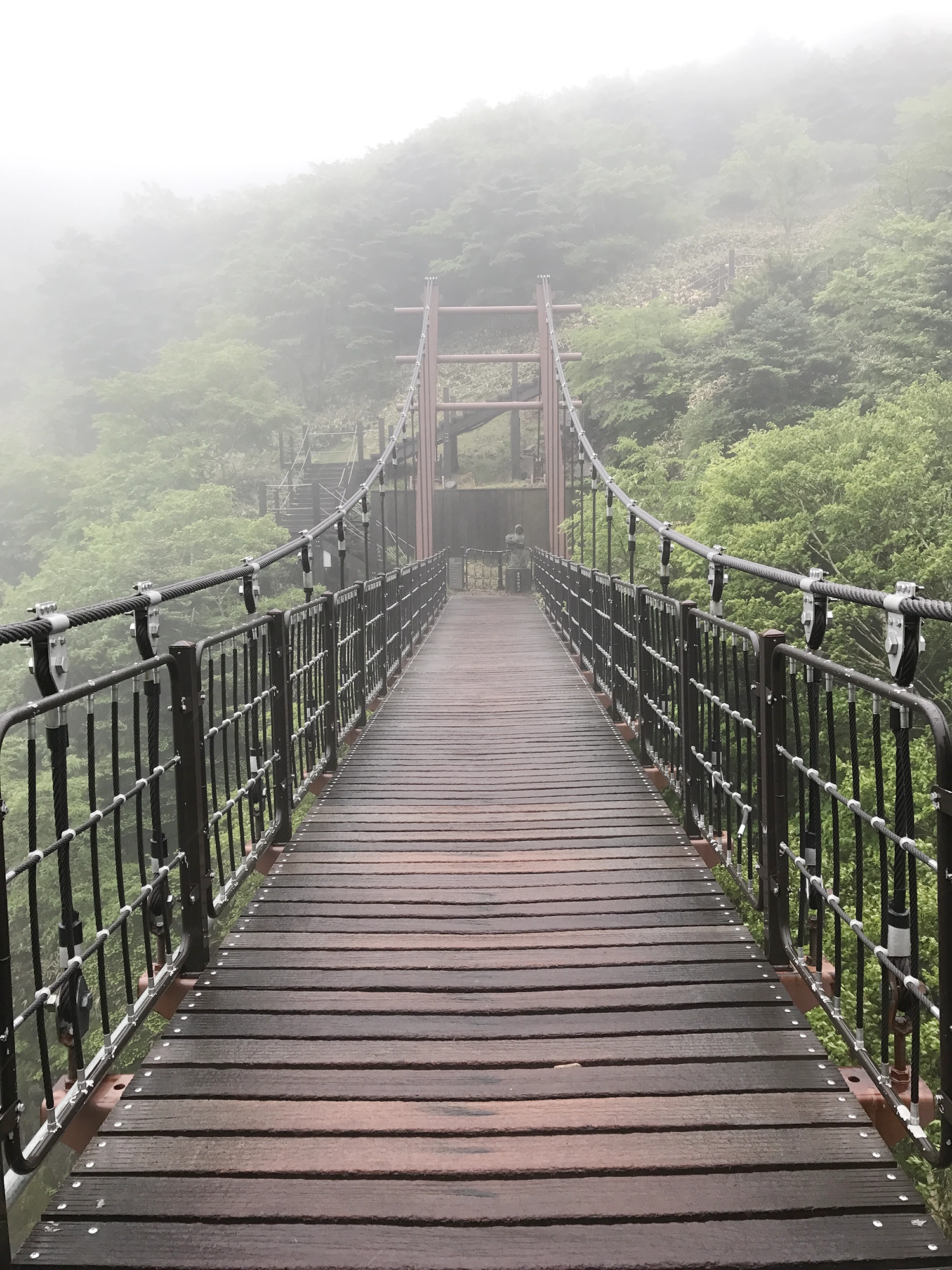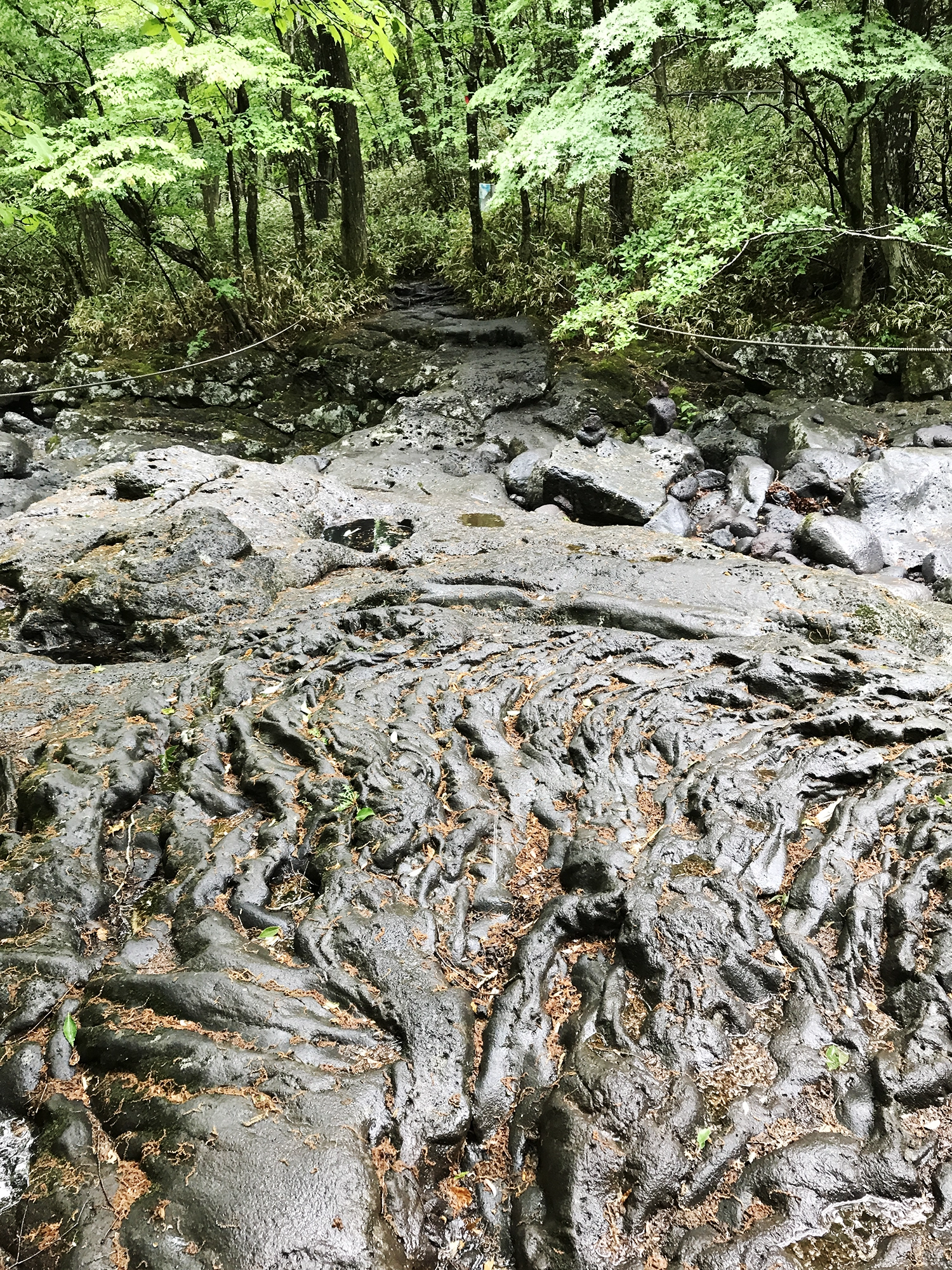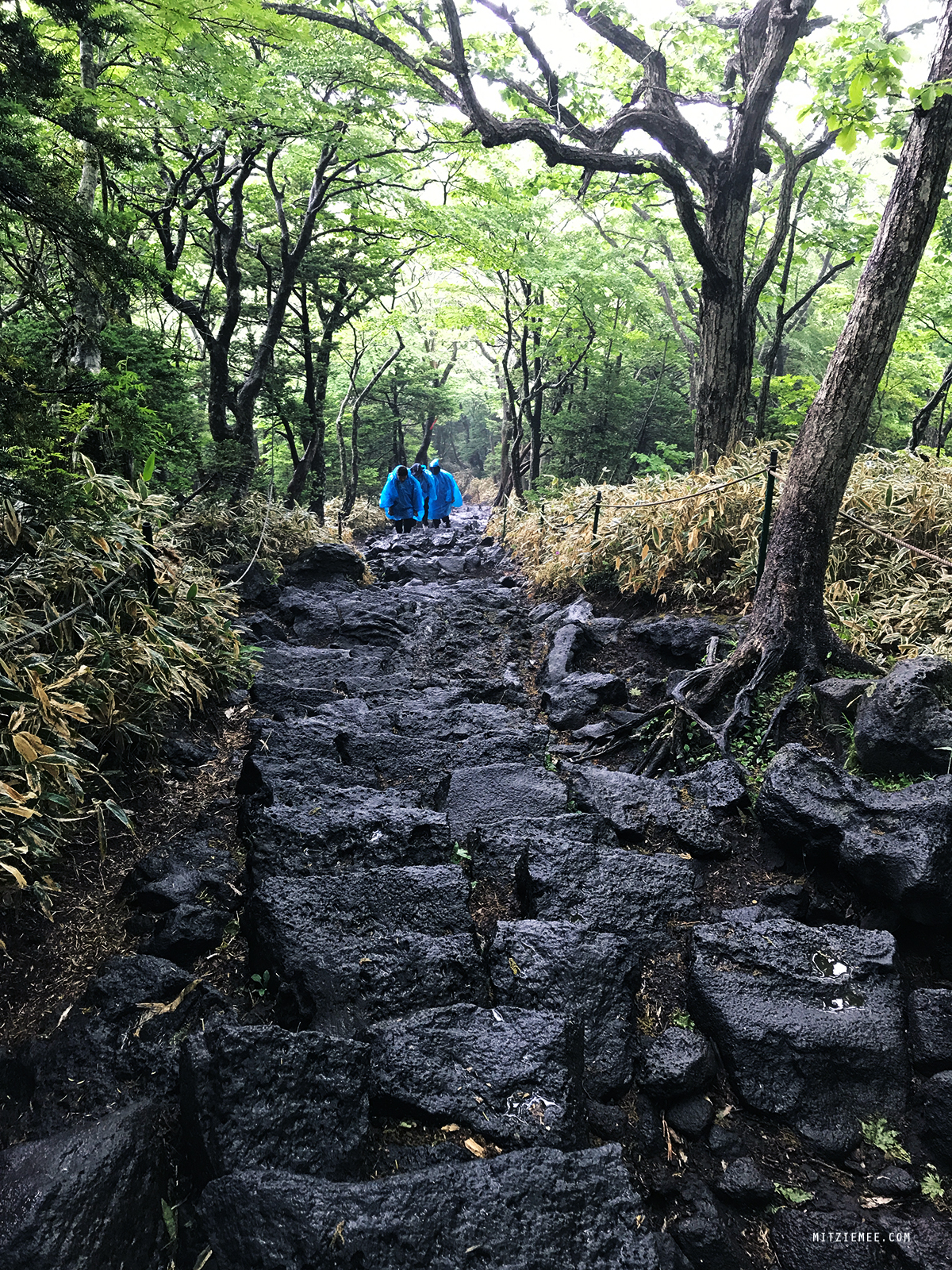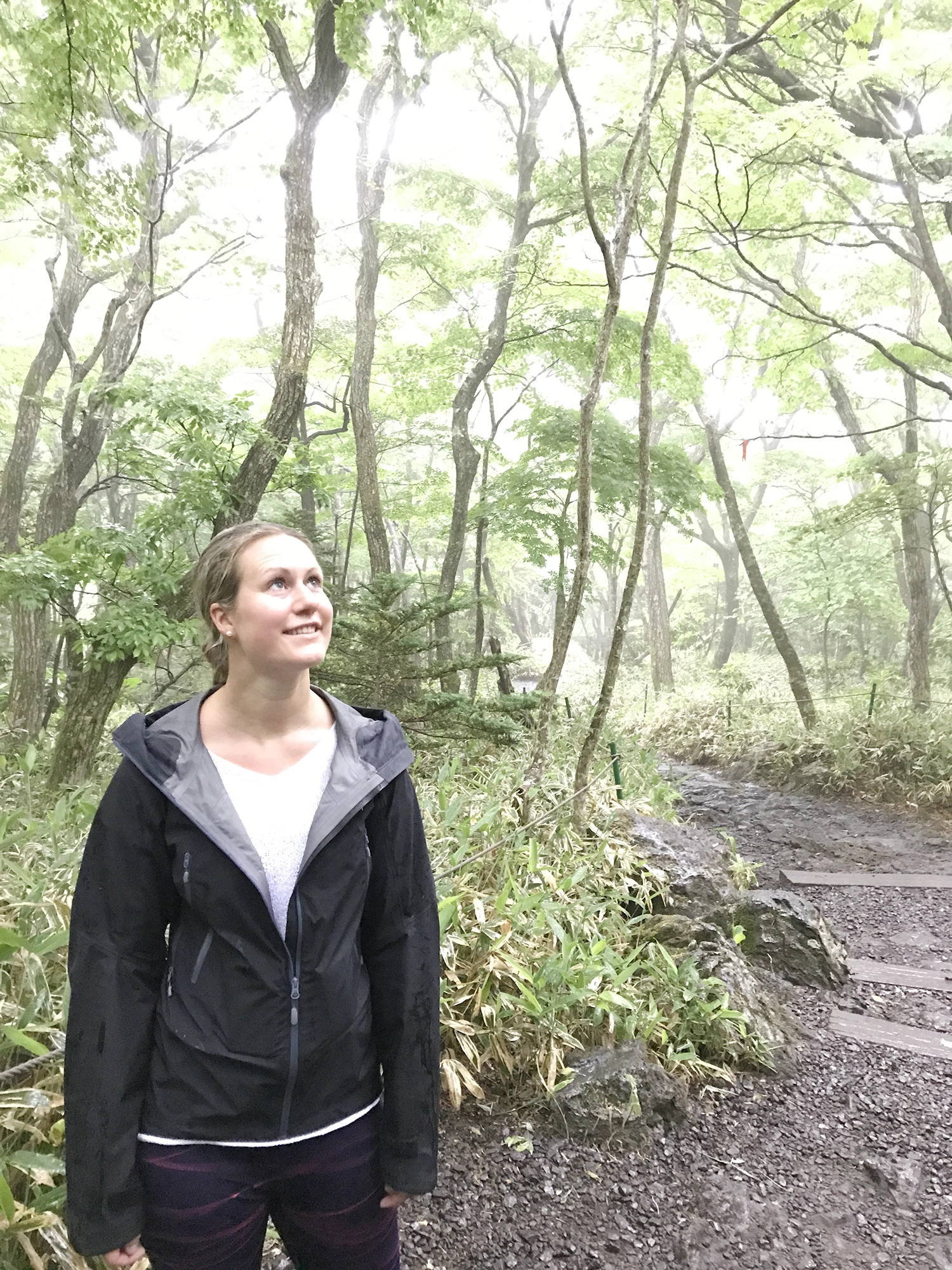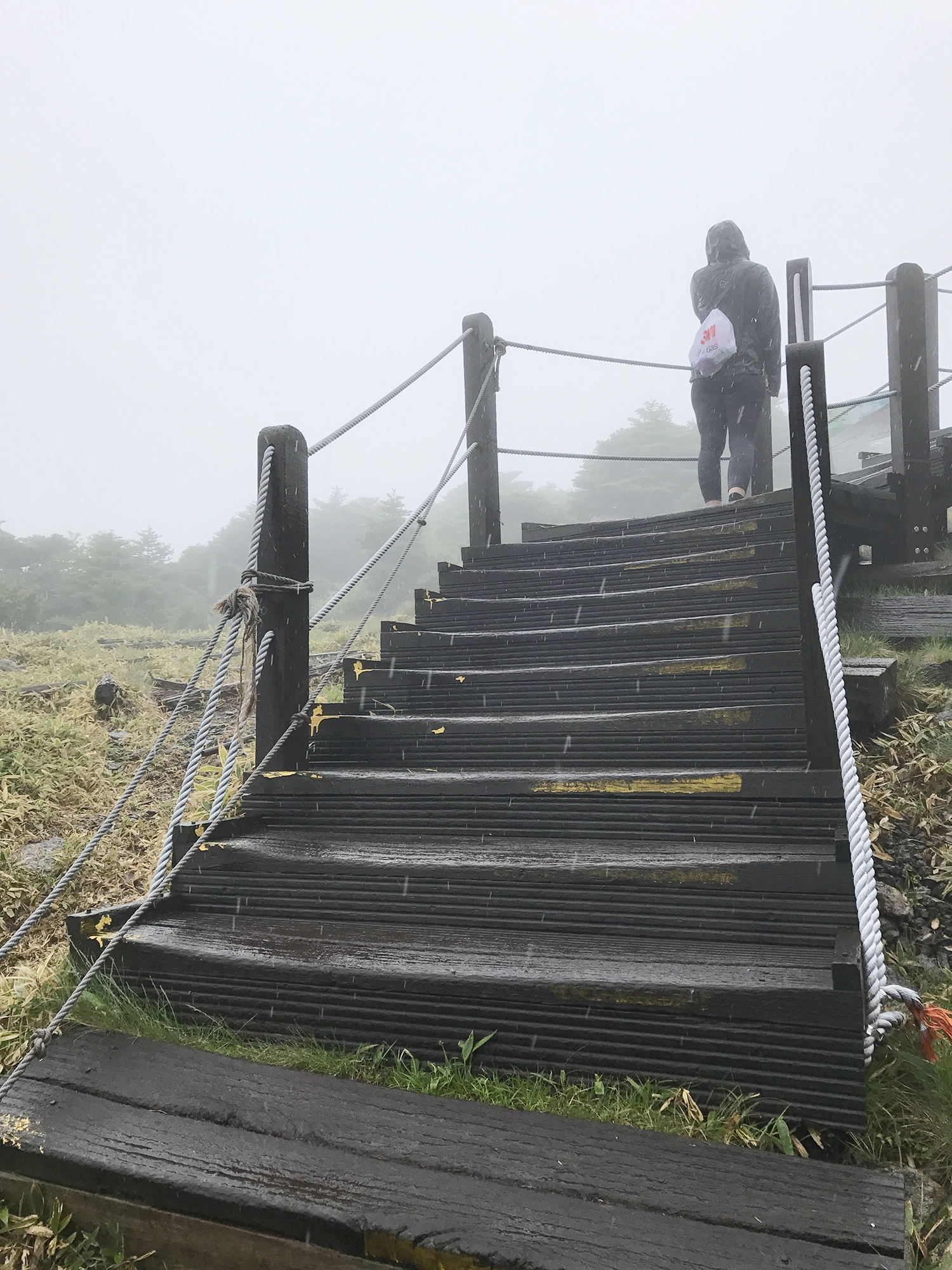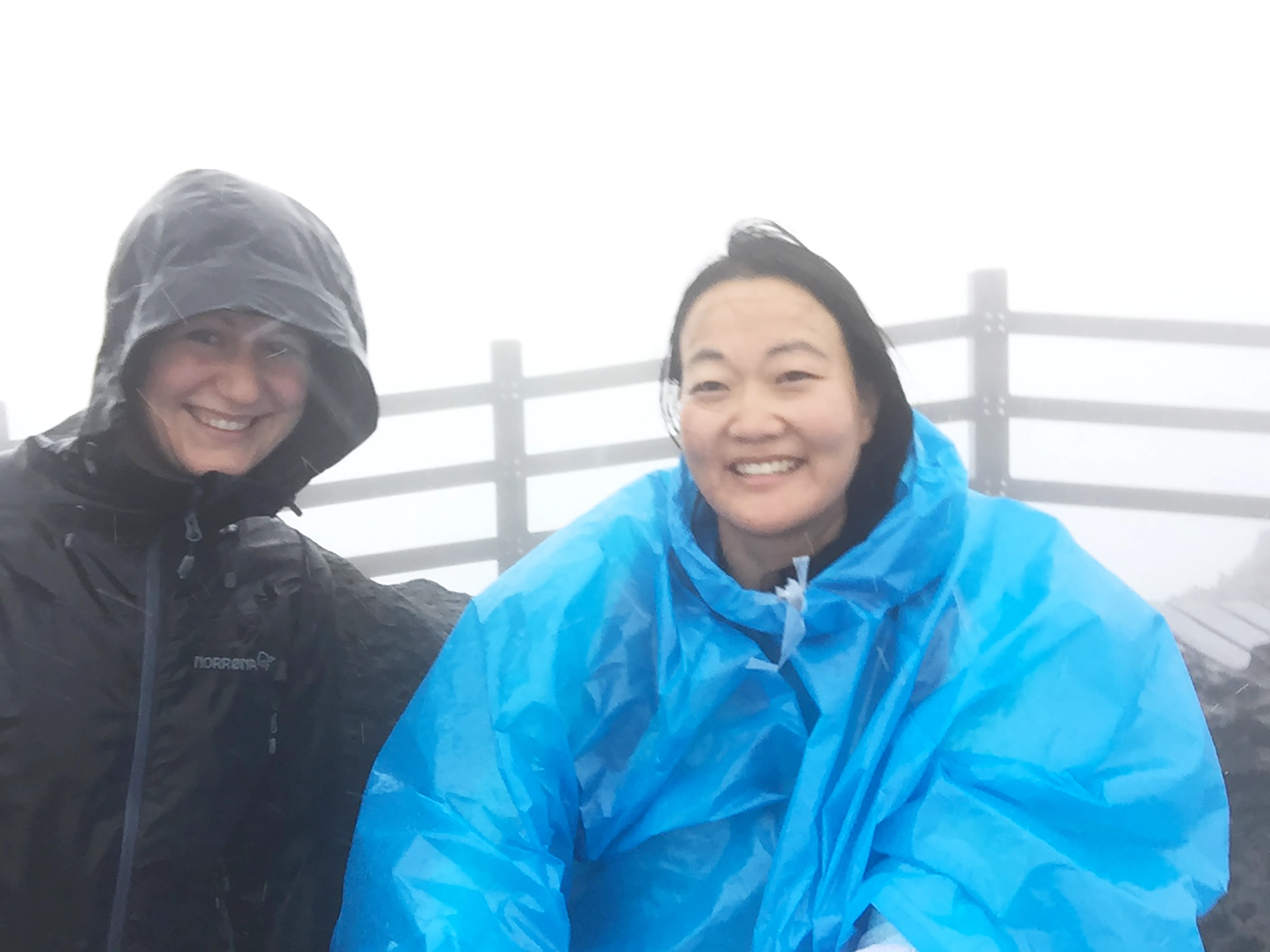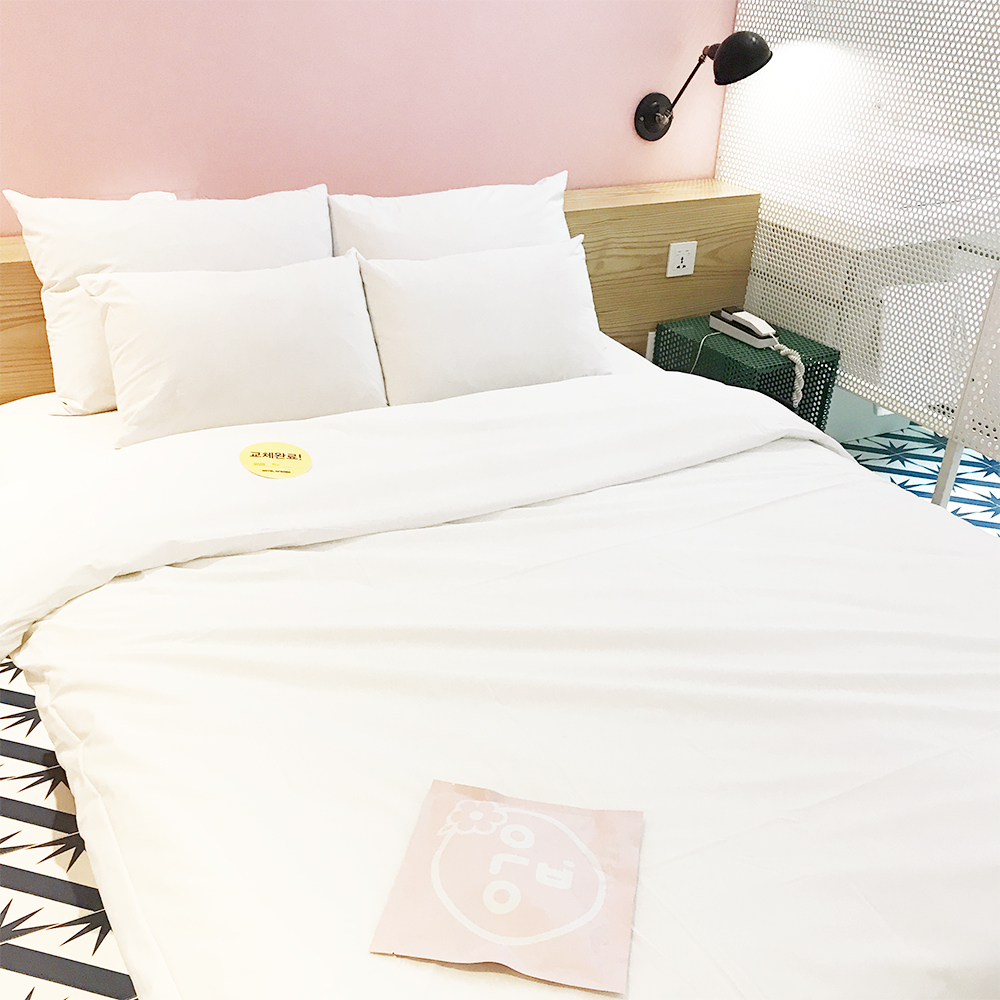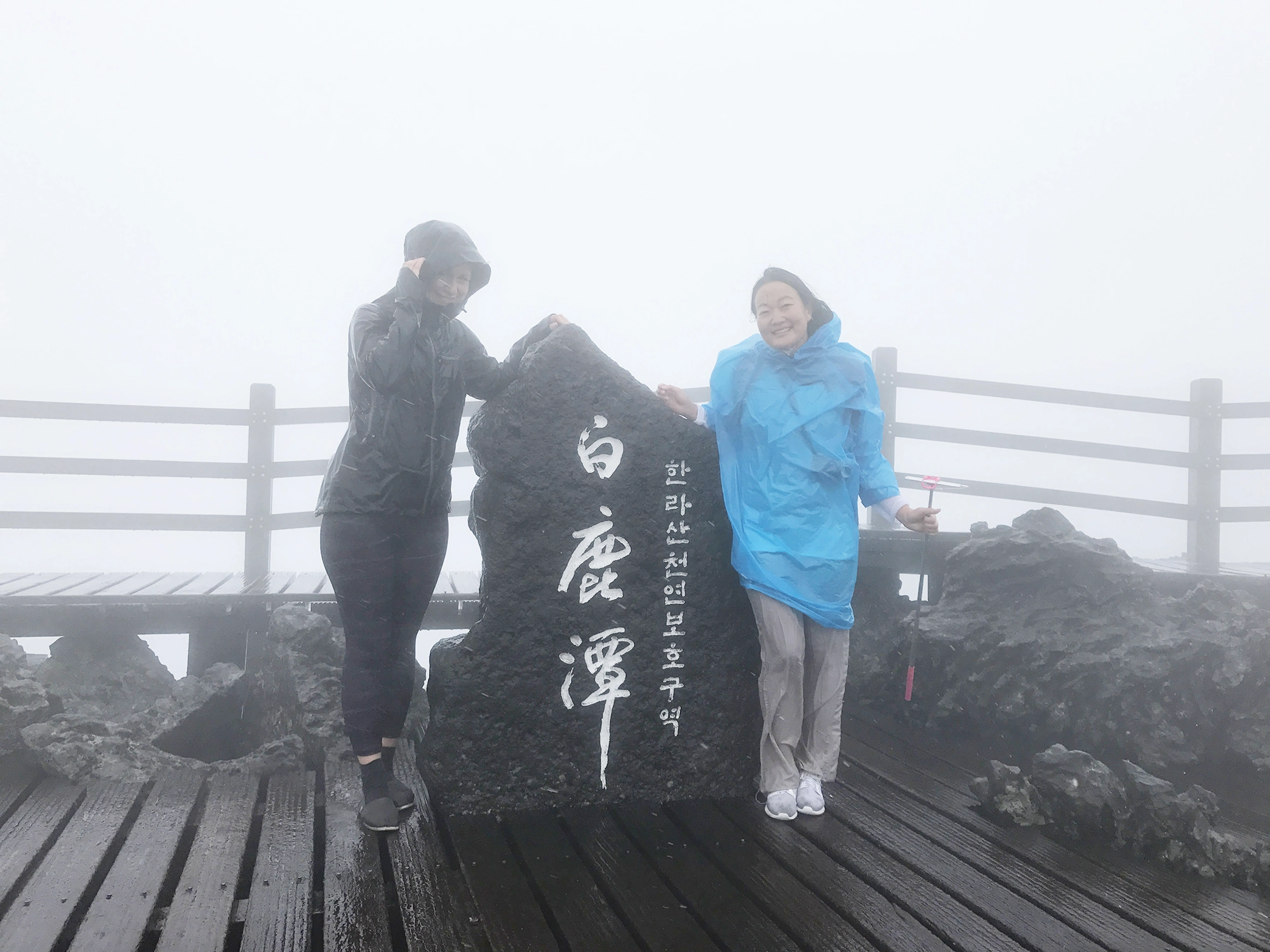
Hallasan rises from the center of Jeju Island like a sleeping giant. It’s South Korea’s tallest mountain at 6388ft /1947m above sea level, a long-dormant volcano draped in forest, lava fields, and hiking trails. On clear days, you can see all the way to the sea from the summit. The mountain is part of Hallasan National Park, a UNESCO Biosphere Reserve known for its dramatic seasonal shifts. Lush and green in summer, golden and rust-red in fall, and covered in snow in winter.
The best time to hike Hallasan is in spring or fall, when the weather is mild and visibility is good. Summer can be hot and humid, and winter conditions often call for crampons and cold-weather gear. It really depends on the kind of adventure you want.
There are several trails up Hallasan, but only two reach the summit: Seongpanak and Gwaneumsa. Each is about 5.6 miles (9 kilometers) one way, so you’re looking at roughly 11 miles (18 kilometers) round-trip, depending on your route.
The hike is demanding, especially toward the top where the incline steepens, but it’s far from impossible. The paths are well maintained, and with good shoes, a few snacks, and plenty of time, most people in reasonable shape can make it.
Start early so you can take it slow and enjoy the changing scenery as the trail moves from dense forest to open volcanic landscape with sweeping views of Jeju Island.
When AC and I visited Jeju, we decided on a whim to climb Hallasan. No plan, no preparation, no idea what we were getting into. Not my brightest idea. It’s a beautiful hike, but also a rather tough one, and definitely more than just a casual walk in the woods. I’ve therefore put together this guide with all the things I wish I’d known before setting out for the summit.
Make a reservation
If you’re planning to hike all the way to the top, you need to make a reservation in advance. This applies to the two main summit trails, Seongpanak and Gwaneumsa. Reservations are free and can be made online. You’ll receive a QR code that must be shown at the entrance together with your ID. The number of daily hikers is limited, so book early, especially on weekends and holidays. For the shorter trails that don’t go to the summit, like Yeongsil or Eorimok, no reservation is needed. Whatever route you choose, start early, as there are strict time limits for when hikers can pass certain checkpoints on the mountain.
You can make your reservation at the Hallasan website which also has information about the trails, trail closures and other essential info.
Check the weather forecast
Trust me, it sucks to have walked 10 kilometers uphill only to find out it’s so hazy you can’t see a thing.
Rise with the sun
Hiking is only allowed at daytime, and there’s no accommodation facilities available inside the park. If you don’t start your hike or reach certain checkpoints at specified times, depending on season, you’re not allowed to proceed to the top. Depending on which route you take, expect to spend at least 8 hours on the hike altogether.
Know your limitations
Both AC and I were very determined to reach the top, and I think we both got a little summit fever. When you’re tired, there’s a greater risk of injuries, and looking back, we probably should have turned around at the Jindallaebat shelter.
My Korean friends told me that Koreans would usually prepare for Hallasan months in advance. While AC is an experienced hiker, my “preparation” was a couple of yoga classes in Bali. I don’t think that counts.
Dress for the occasion
You might be laughing, when you see the old Koreans with so much gear, it looks like they’re planning to climb Mt. Everest, but there’s no doubt that the right equipment would have made our hike both easier and more comfortable. If it rains, wear waterproof from head to toe, and make sure you have a good pair of hiking shoes, as the trails get slippery. Also bear in mind that the weather at the summit might be very different from the conditions below.
Bring enough supplies
There were a few shelters along the way, but only one of them, Jindallaebat, on the Seongpanak trail, was selling a very limited supply of snacks and drinks. I got a lot more hungry and thirsty than I expected, so unless you want to drink rainwater and eat leaves from the trees, you’d better bring as much as you can carry. Also note that there is no garbage disposal on the mountain, so you have to take all packaging and empty bottles with you.
Take a selfie
If you want an official certificate proving you reached the summit, you’ll need to upload a photo taken within one kilometer of the top. The photo must be taken on the same day as your registered hike, and your phone’s GPS needs to be enabled so the location data is embedded in the file. The certificate can only be printed at the kiosk at the trail entrance once your photo has been verified and you’ve paid the small issuance fee.
Hallasan may look peaceful from afar, but don’t underestimate it. It’s a challenging but unforgettable hike—and with a little planning, you’ll be rewarded with some of the most stunning views in all of Korea.
My blog post about my hike to the summit – Hallasan for beginners
If you’re planning to hike Hallasan, make sure you’ve got a solid pair of hiking boots. The trail isn’t extremely technical, but it’s long, and the rocky sections can be tough on your feet. A good hiking boot should have proper ankle support, a sturdy sole with good grip, and enough cushioning to keep you comfortable for several hours on the trail. Waterproofing also helps, since the weather on Hallasan can change fast and you might run into rain or wet patches. Oh, and also, I always recommend breaking in your boots before the trip, because nothing ruins a hike faster than blisters from brand new shoes.
